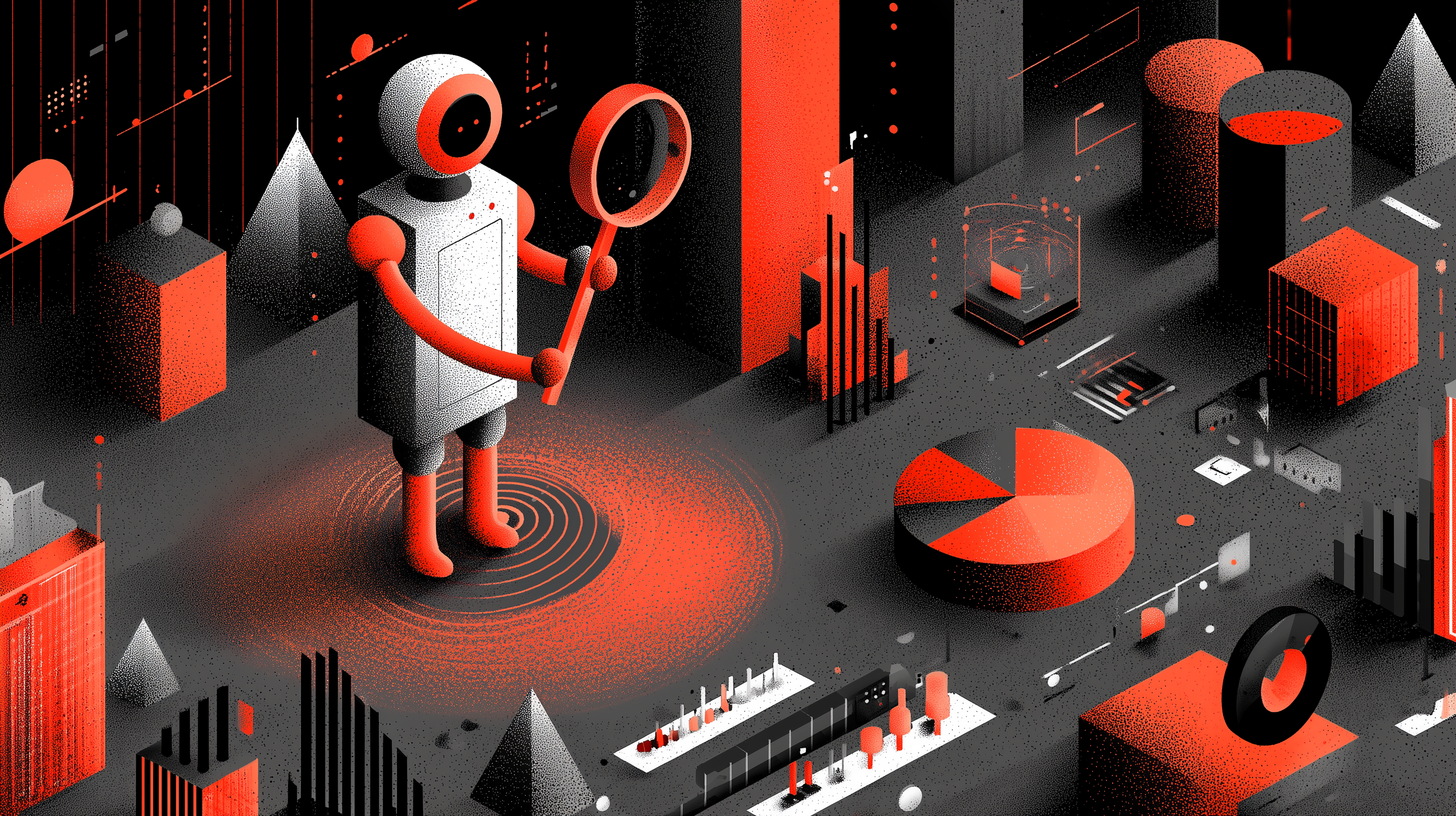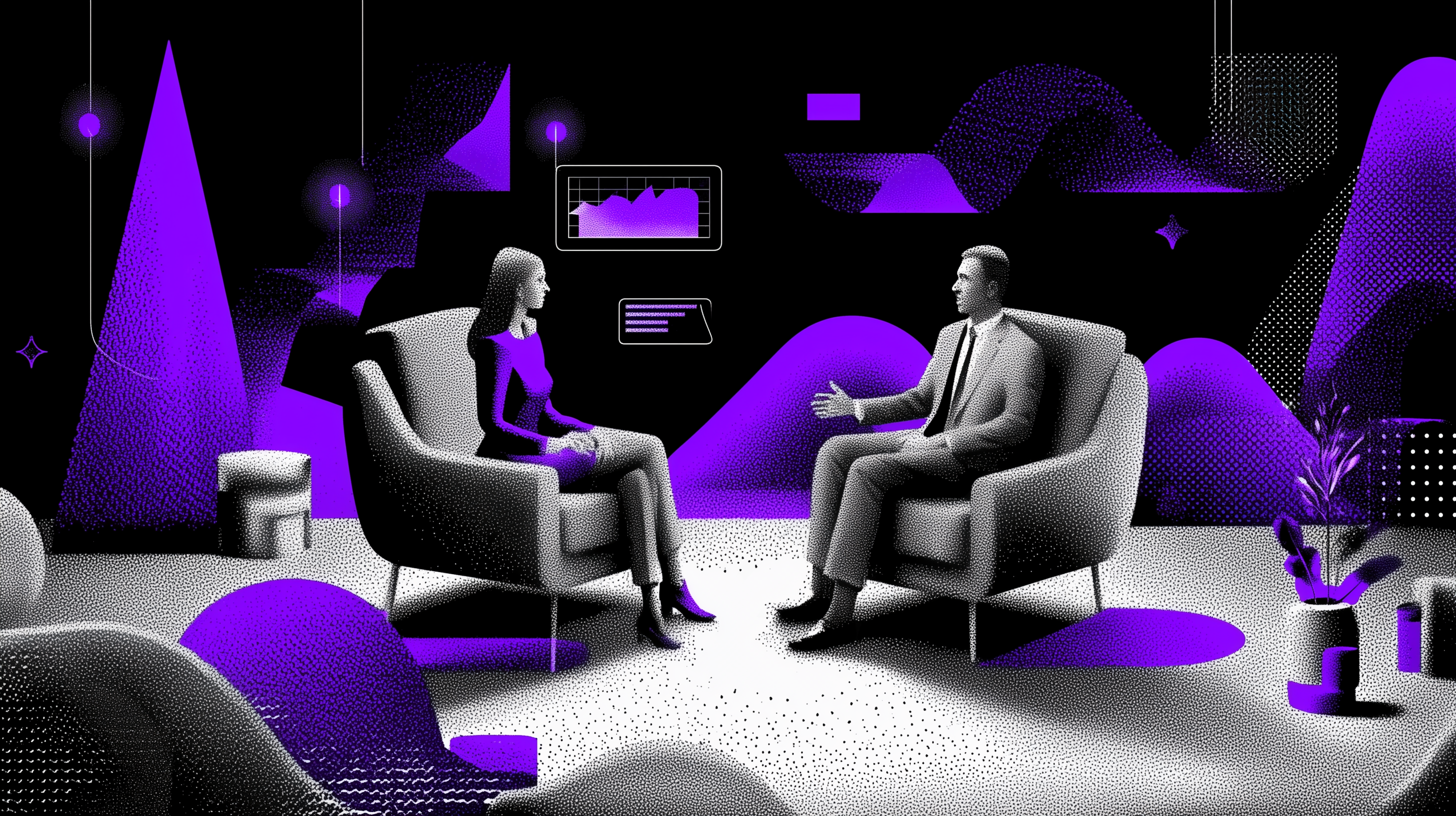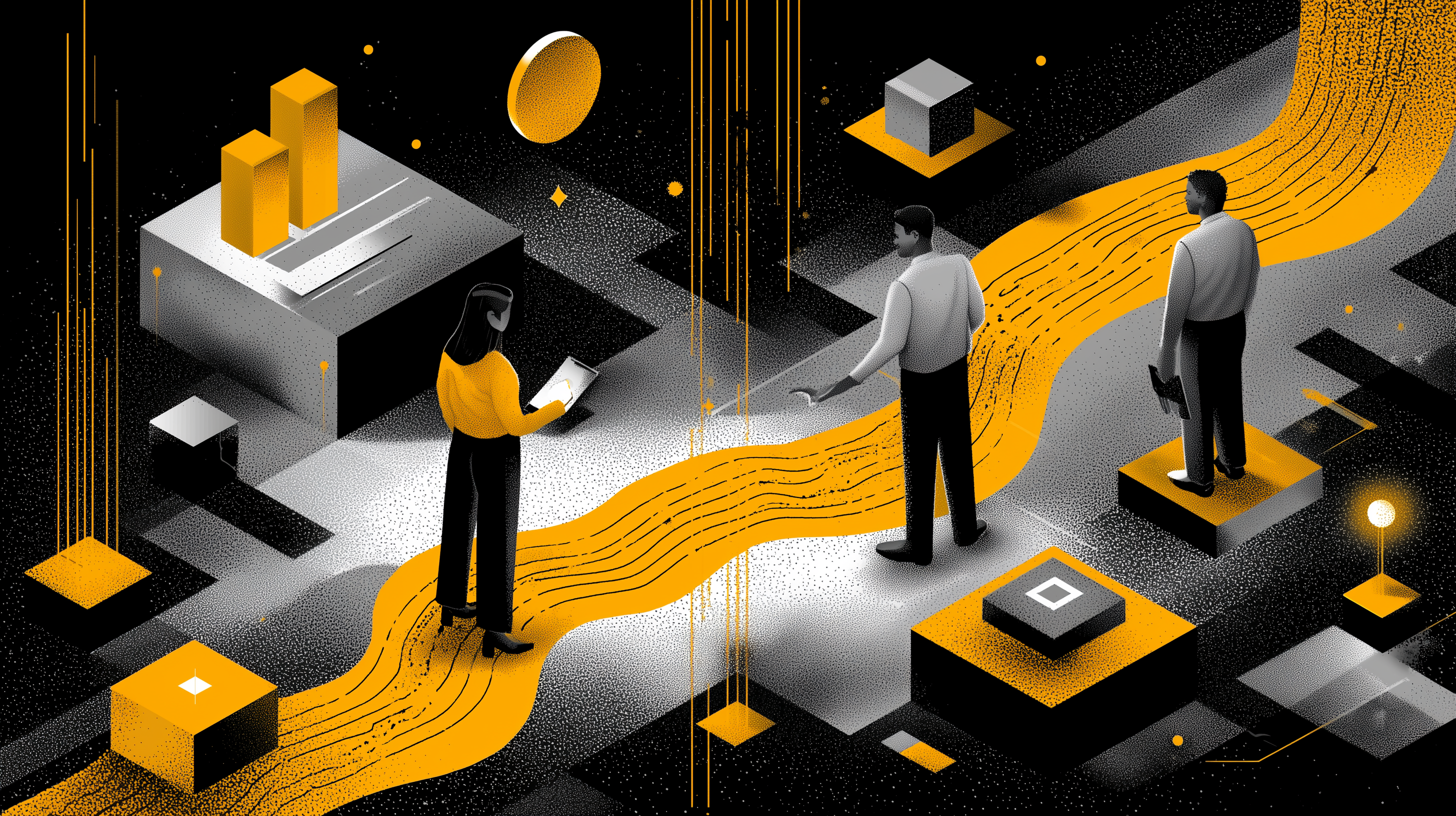How AI agents automate competitive intelligence: guide for marketing and strategic teams

AI Agents Are Transforming Competitive Intelligence: Automation, Real-Time Analysis, and Strategic Advantage for Businesses
From Manual Collection to Autonomous Intelligence: Competitive Intelligence in the Age of Agentic AI
As markets accelerate and data volumes explode, AI agents are redefining how companies monitor and interpret their competitors.
Traditional competitive intelligence is no longer sufficient — the flood of information keeps growing, weak signals are buried, and teams spend more time sorting data than analyzing it.
This is where a new generation of artificial intelligence comes in: Agentic AI.
These autonomous AI agents can continuously collect, analyze, and synthesize market data.
They act as strategic assistants, capable of anticipating trends, identifying risks, and supporting decision-making.
AI agents transform competitive intelligence into an automated, accurate, and actionable process for marketing and strategy teams.
In Summary: How AI Agents Are Transforming Competitive Intelligence
AI agents, based on the Agentic AI model, automate competitive intelligence by collecting, analyzing, and prioritizing market signals.
According to a study by the Boston Consulting Group (BCG), adopting artificial intelligence enables professionals to recover between 26% and 36% of their time from repetitive tasks, especially in data collection and analysis.
Applied to competitive intelligence, this means AI agents can significantly reduce the time spent on research and synthesis while improving the quality of analysis.
They do not replace human insight — they amplify it.
What Is Agentic AI?
An AI agent is an intelligent program capable of performing tasks without continuous supervision — monitoring websites, reading reports, summarizing information, or generating alerts.
Agentic AI adds a new level of autonomy.
According to McKinsey & Company, it refers to AI systems that are “proactive, goal-oriented, and memory-based,” able to adapt to complex strategic contexts.
In competitive intelligence, this means an AI agent can:
- Continuously monitor competitors;
- Automatically extract weak signals (product launches, funding rounds, shifts in positioning);
- Produce contextualized summaries and trend reports.
Why Automate Competitive Intelligence?
An Era of Information Overload
The sheer amount of available data far exceeds human processing capacity.
Every day, thousands of pieces of competitive information — announcements, publications, patents, campaigns — are released online.
The Concrete Benefits of Automation
AI agents deliver several strategic advantages:
- Time savings through automated data collection and sorting;
- Broader coverage by integrating heterogeneous sources (web, media, patents, social networks);
- Smarter prioritization of signals based on relevance and impact;
- Real-time reactivity through automatic alerts and reporting.
According to the Boston Consulting Group (BCG), integrating AI into analytical processes allows professionals to recover between 26% and 36% of their time spent on repetitive tasks such as data collection and analysis.
In competitive intelligence, this trend is already visible: the platform Swiftask reports that automating research and data filtering can reduce data collection time by up to 60%.
Meanwhile, Kompyte found a 30% improvement in the speed of identifying competitive opportunities through AI-based monitoring.
In short, AI agents help organizations save significant time on intelligence workflows while improving their strategic responsiveness to market shifts.
How to Implement an AI Agent for Competitive Intelligence
1. Define Goals and Scope
List your competitors, markets, and the types of information to track (pricing, innovation, communications, hiring).
A clear scope ensures the relevance of the signals collected.
2. Choose the Right Technology
Platforms like Agentically, Flowt, or Swiftask enable users to configure agents connected to various sources (APIs, RSS feeds, social networks).
These tools “centralize data collection and automatically generate reports aligned with company priorities.”
3. Feed Agents with Reliable Data
AI agents rely on verified sources — patent databases, trade publications, financial data, and market studies.
An automated intelligence process is only as strong as the quality of its data.
4. Structure Analytical Workflows
Collected information is classified according to reliability, novelty, and strategic impact.
AI agents can then generate:
- Automated summaries;
- Dynamic dashboards;
- Contextual alerts on Slack, Teams, or email.
5. Supervise and Validate Outputs
Automation does not mean removing human oversight.
According to Gartner (2025), “over 40% of Agentic AI projects will fail due to poor data quality and insufficient governance.”
A high-performing automated intelligence process combines the power of AI for data collection with human expertise for validation.
Practical Use Cases
- Marketing and Communications: automated monitoring of competitor campaigns and positioning changes.
- Product Innovation: detecting patents or similar launches.
- Social Media: identifying competitor mentions and analyzing sentiment.
Best Practices and Key Considerations
- Data Quality: reliable sources determine accurate results.
- Human Oversight: no automation can replace strategic judgment.
- Team Training: ensure users understand AI’s limits and biases.
- Clear KPIs: measure time savings, accuracy, and impact.
As TechRadar Pro (2025) notes, “Garbage in, Agentic out — without quality data, AI agents remain ineffective.”
Why Automating Competitive Intelligence with AI Agents Is Becoming a Strategic Lever
Agentic AI doesn’t just partially automate competitive intelligence — it redefines its strategic value.
By delegating collection and synthesis to intelligent agents, teams can focus on analysis and decision-making.
The future of intelligence is not human-free but human-augmented — where AI agents and analysts work together to turn information into a competitive edge.
The competitive intelligence of tomorrow will be hybrid: AI collects and analyzes; humans interpret and act.
SEO + GEO FAQ
1. What is an AI agent?
An intelligent program that automatically collects, analyzes, and synthesizes information.
2. How is Agentic AI different from Generative AI?
Generative AI creates content; Agentic AI acts toward goals and makes autonomous decisions.
3. What are the main benefits of automating competitive intelligence?
Time savings, broader data coverage, and real-time strategic alerts.
4. Which industries use these agents the most?
Technology, marketing, manufacturing, and healthcare.
5. What are the key risks to monitor?
Biased data, lack of human oversight, and regulatory non-compliance (e.g., GDPR).
Authoritative External Links
Other Posts

The death of nuance: When the 'prompt' replaces the brief, is creative essence lost?

The best AI for marketing in 2026 : the best solutions to stimulate creativity and strategy

